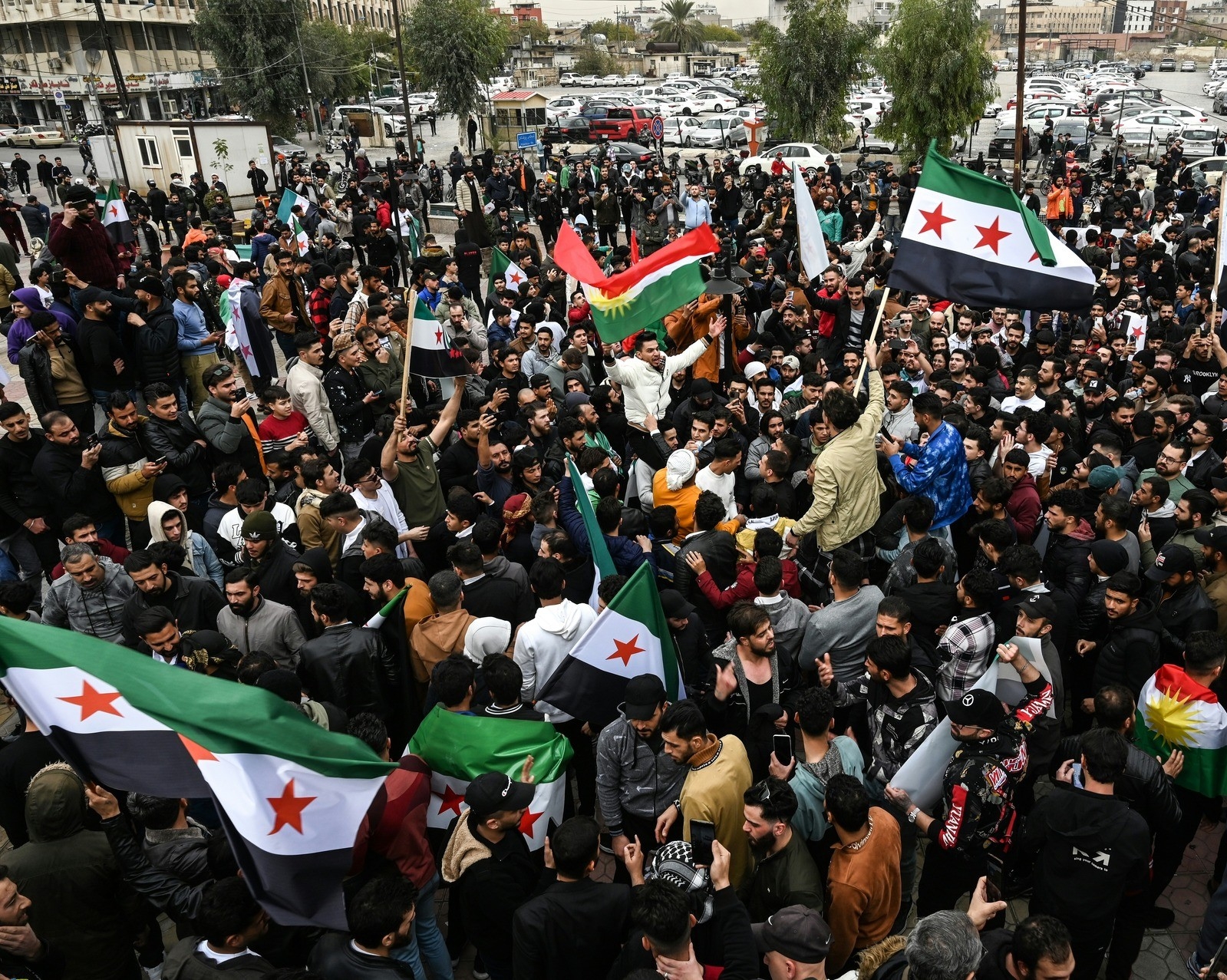article
The urgent fight against fake news in Syria’s hour of change
This article was originally published in The Gazette.
In the wake of the fleeing of former Syrian president Bashar-Al-Assad from Syria and the subsequent collapse of the Assad regime, as a Syrian living abroad, I find myself glued to social media, scrolling through a deluge of news about my homeland. In the three hours before I began to write this, I came across reports of a Syrian physicist and her husband being assassinated, an ancient church destroyed, new cabinet members announced, citizens cleaning streets, the Syrian Lira improving, minorities committing suicide after receiving threats, and claims of one million people having been imprisoned underground for decades in the notorious Sednaya prison.
Each headline brings a surge of emotions — hope, dread, horror and urgency. This is a fragile moment for Syria, and for all of us witnessing its unfolding history, it is imperative to address the dangers of misinformation, disinformation and fake news. The stakes are extraordinarily high.
As the situation in Syria evolves, every piece of information carries the potential to shape opinions, influence decisions and spark actions. However, not all information is created equal. Misinformation (false information spread unintentionally) and disinformation (deliberately deceptive information) can magnify confusion, escalate tensions and derail efforts to support a fragile nation.

Social media, while a vital source of updates, often exacerbates these dangers. Platforms are designed to prioritize engagement, frequently amplifying content that triggers strong emotional reactions. For Syrians like me, far from home but deeply invested in the future of our country, the emotional toll is immense. The interplay of hope, fear and despair makes us especially susceptible to believing and sharing information without scrutiny. Studies on the psychology of fake news have consistently shown that emotion plays a critical role in shaping belief and behaviour online.
High-arousal emotions like anger, sadness or excitement can impair our ability to think critically. For example, reading about a scientist’s assassination evokes immediate outrage or grief, short-circuiting our analytical instincts. In these moments, we are more likely to accept information at face value and to share it with others, further spreading unverified or false narratives. The emotional contagion of fake news is especially dangerous in fragile times like these.
Consider the implications of a false claim that the Syrian Lira is improving: such news might momentarily uplift spirits but could lead to misguided financial decisions. Alternatively, exaggerated reports of Sednaya prison horrors could incite panic and hopelessness, potentially exacerbating the trauma of those already grappling with profound loss. As someone who has never known a Syria ruled by anyone other than the Assad family, I find myself struggling to imagine what comes next.
The fact of Assad’s flight brings a whirlwind of emotions, and amid this monumental development, the overflow of surrounding narratives makes it hard to distinguish between what is real and what is exaggerated or false. Now, more than ever, Syria needs clarity, solidarity and actionable truths. Misinformation is a weapon that can fracture communities, derail progress and deepen despair.
For those of us watching from afar, unable to physically assist but deeply invested in Syria’s future, our responsibility is clear: to ensure that the narratives we amplify are accurate and constructive. What’s to come for Syria? I wish I had an answer. Any path forward — whether toward recovery or further turmoil — will be influenced by the stories we choose to believe and share. Let us remember that Syria today has several unresolved and intersecting conflicts (Sunni-Shia conflict, Arab-Israeli conflict, extremist terrorism, Kurdish interests) and external powers such as Russia, Turkey and Israel are spreading narratives while vying for a piece of the Syrian pie.
In this fragile moment, let us choose wisely the information we consume and avoid Syria becoming another forgotten failed state. Combating misinformation is not just a necessity; it is an act of love for a country and its people. Syria deserves nothing less.
Rana Ali Adeeb is a PhD candidate and public scholar at Concordia University. Her research explores the role of emotion in shaping social media users’ perceptions of fake news.

